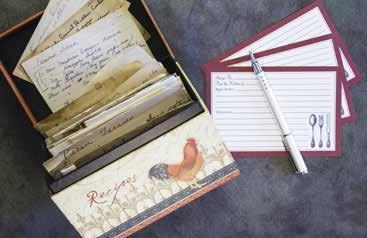
4 minute read
Food Safety
PLAN AHEAD FOR FOOD PRESERVATION SEASON
HAVE THESE THINGS IN PLACE BEFORE STARTING
Advertisement
BY ANGELA TREADAWAY
Growing and preserving your own food lets you enjoy delicious, in-season fruits and vegetables throughout the year. For many of us, who may not have our very own home garden, there is still a way we can capture the great quality and flavor of fresh fruits and vegetables and indulge all year. There are many farmers markets now throughout the state and there is probably one in your community or nearby. These fruit and vegetable growers offer a wide variety of fresh fruits and vegetables, notably squash, okra, greens and of course those sweet watermelons during the summer months. If you are thinking about canning as a way to preserve your food this summer, there are a couple of things you should have in place before getting started.
RECIPES:
All home canned foods should be prepared using research-tested recipes. Research is done continually to provide the latest, most up-to-date recommenda-

tions. Many new guidelines have been released over the last couple of years, so make sure your recipes have the latest information to keep your family safe. The Extension office in your county will be able to provide you with this information. There are many websites online that have recipes, but you want to be careful to use a website that is from a safe source like the Extension Service or USDA-tested recipes. Following some websites that do not have tested recipes especially for vegetable preservation can be very dangerous.
EQUIPMENT:
Review the equipment needed for canning and make sure they are ready in advance. A water bath canner is needed for processing fruits and a large pressure canner is essential for vegetables, meats, fish and other low-acid foods. You should also have a sharp knife, jars, measuring cups, new lids, a funnel, sugar, salt, rings and a jar lifter. Check your jars for chipping, check gaskets for damage and then call your County Extension Office to request a day that you wish to have your pressure canner gauge tested. Gauges should be checked every year for accuracy (there is no charge to have it checked). While there, pick up a Home Food Preservation information pamphlet. The canning process should begin as each fruit or vegetable is being harvested. For a nicer product, try to use fruit or vegetables without any sign of insect damage, bruising or wilting. The first step will be to sterilize your jars. As you prepare your recipe, get your canner on the stove. Next, fill your jars according to the directions and then seal. After removing them from the canner, put them onto a dry, clean, cloth where they can sit for the next 24 hours. The following morning, you should check to make sure you have a good seal. If sealed properly clean, label and store to enjoy later in the year or in the winter.


STORAGE:
You want to make sure that you have a good storage area; after all you’ve put in a lot of work. Most canned food items are good for up to a year. For a complete list, you may download an Extension Publication, “Better Safe than Sorry Food Storage Chart,” or request one from your County Office. There are many other publications available for home food preservers at this website: www.aces.edu. You may also visit the University of Georgia’ website for more information at: www.uga.edu/nchfp/.

For more questions on Food Preservation please contact one of your local Regional Agents in Food Safety & Quality:
• Angela Treadaway at 205-410-3696 or email is atreadaw@aces.edu • Christy Mendoza at 205-217-6495 or email is cnm0012@aces.edu • April Susan Hill at 205-269-1748 or email is hillaps@aces.edu • Janet Johnson at 334-703-2237 or email is johns16@aces.edu • Bridgette Brannon at 334-714-1248 or email is huttobf@aces.edu • Alice Moore at 334-216-0738 or email is amm0167@auburn.edu • Rebecca Catalena at 251-234-1020 or email is rjc0026@auburn.edu • Dani Reams at 256-368-1694 or email is acr0087@auburn.edu
These Regional Extension Agents will be doing food preservation workshops this summer by Zoom. Follow us on Facebook at Alabama Cooperative Extension Food Safety to find out what classes and when we will offer them. You can also find more food preservation and food safety info and upcoming classes at www.aces.edu.

OVER 75 YEARS
OF ELECTRICFENCING

LEARN ABOUT THE DARE ADVANTAGE










